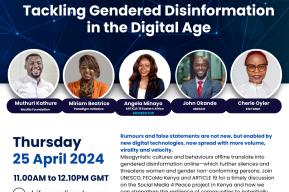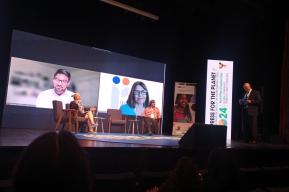
Building democracy, fostering peace
At each of the key moments that have marked contemporary history, UNESCO has supported the peaceful development of societies by contributing to the construction and consolidation of democracy, and the development of democratic institutions, especially in times of transition.
Building democracies through education
Supporting democratic systems

MOOC: Information and Elections in the Digital Era"
Organized by the Knight Center for Journalism in the Americas, the United Nations Educational, Scientific and Cultural Organization (UNESCO) and the United Nations Development Program (UNDP).
While the digital era has presented opportunities for enhancing freedom of expression, social media also poses new challenges. The spread of disinformation and misinformation online, intimidation and harassment (particularly against women), hate speech, and micro-targeting can undermine electoral and governance processes. During this five-week massive open online course, which will be held from September 19 to October 23, 2022, students will explore the diverse malpractices, strategies and techniques, which electoral stakeholders face online.






